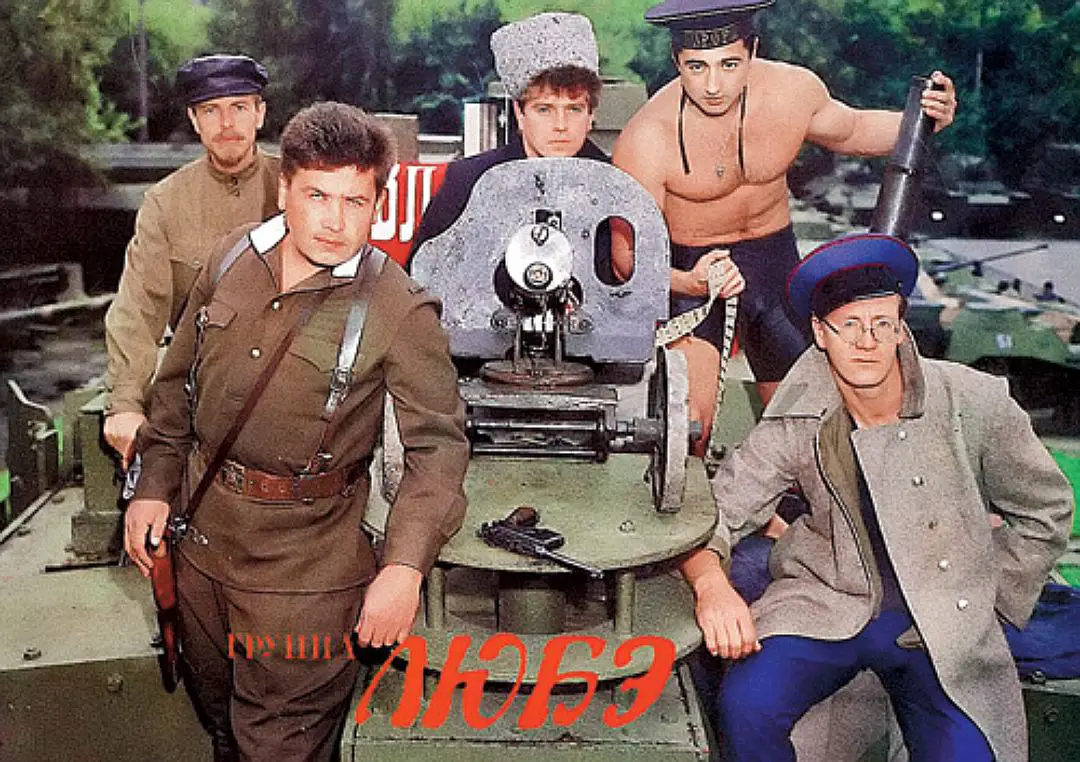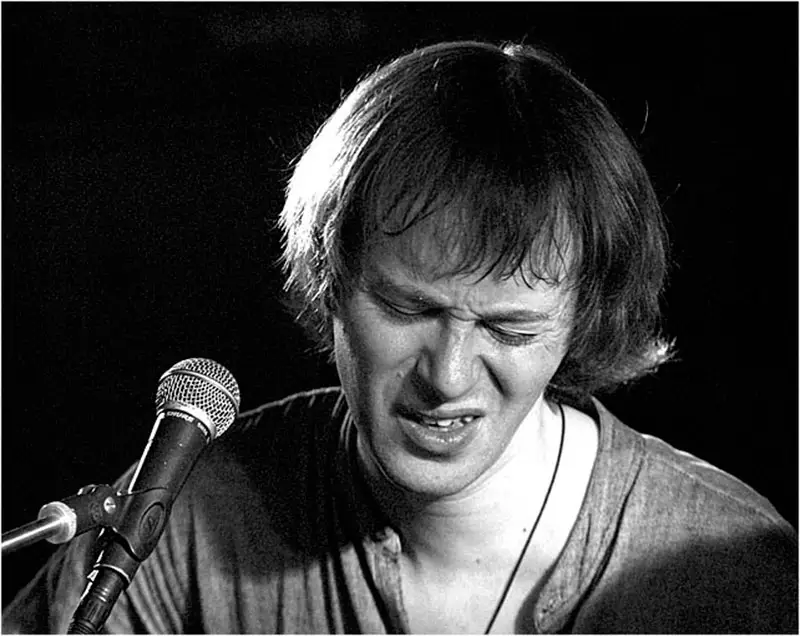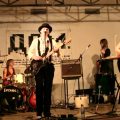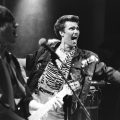Lube (Любэ; also recognized as Ljube or Lyube) is a Russian rock band that formed in the Moscovian suburb Lyubertsy (Люберцы) in 1989. Contrary to the sugary-sweet style saturating pop music at the time, producer and songwriter Igor Matviyenko (Игорь Матвиенко) wanted to incorporate elements of rock, Russian folk music, and Soviet military songs with strong male vocals to craft songs concerning the “ordinary and glorious labor of the people.”
Matvienko chose Nikolay Rastorguyev (Николай Расторгуев), a People’s Artist of Russia, to lead the group. Rastorguyev came up with the band’s name, which is both a nickname for Lyubertsy and a slang word meaning “any,” to signify a diversity of choices or views. This reflects Lube’s myriad of styles and influences. Rastorguyev, like the rest of Lube, is a burly, aggressive man who gives high-energy performances.
Lube’s early concerts were poorly attended, but began rising to fame when legendary Soviet pop star Alla Pugachova (Алла Пугачёва) invited the group to her 1989 Christmas Meeting. Rastorguyev wore an old-style Soviet military uniform to the performance – partially in jest, as he’d never served in the armed forces, but the uniform quickly became his signature look. Lube has since released 16 albums, received 13 Zolotoi Gramofon (Золотой Граммофон) awards, and is considered one of the most loved, popular, and celebrated bands in Russia. “Atas” (“Атас”), “Don’t Cut, Guys” (“Не рубите, мужики”), and “Don’t Play the Fool, America” (“Не валяй дурака, Америка”) are among their biggest hits.
In 2001, Lube performed a live concert on Victory Day in Red Square. That same year, Russian president Vladimir Putin, an avowed Lube fan, appointed Rastorguyev a Cultural Advisor to the Russian government. In 2010, Nicholas Rastorguev became a deputy in the State Duma for the Stavropol Territory, and Lube continues to hold concerts to benefit United Russia and its youth movement, Young Guards.
Lube’s hit song, “Не валяй дурака, Америка” (“Don’t Play the Fool, America”):
Lyrics for “Не валяй дурака, Америка”:
Вот те валенки, мерзнешь небось.
Что Сибирь, что Аляска – два берега,
Баня, водка, гармонь и лосось.Не валяй дурака, Америка,
За морями скучаешь поди.
Что Сибирь, что Аляска – два берега,
Бабы, кони, раздолье в пути!Темны улицы, девки-умницы,
Любо-дорого спляшем кадриль.
Что Сибирь, что Аляска – два берега,
Свадьба, эх – запотевший пузырь.Много красной у нас материи,
Всем рубахи пошьем вам, братва.
Эх, корона российской империи…Екатерина, ты была не права.
Не валяй дурака, Америка.
Не обидим, кому говорят.
Отдавай-ка землицу Алясочку,
Отдавай-ка родимую взад!
Не валяй дурака, Америка
Вот те валенки мерзнешь небось
Что Сибирь что Аляска два берега
Баня водка гармонь и лосось
Баня водка гармонь и лосось
Баня водка гармонь и лосось
Баня водка гармонь и лосось
Баня водка гармонь и лосось
Баня водка гармонь и лосось.
The 2008 hit, “Березы” (“Birches”):
Lyrics for “Березы”:
Отчего так в России берёзы шумят,
Отчего белоствольные всё понимают.
У дорог прислонившись, по ветру стоят
И листву так печально кидают.
Я пойду по дороге, простору я рад,
Может, это лишь всё, что я в жизни узнаю.
Отчего так печальные листья летят,
Под рубахою душу лаская.
А на сердце опять горячо-горячо
И опять, и опять без ответа.
А листочек с берёзки упал на плечо,
Он, как я, оторвался от веток.
Посидим на дорожку, родная, с тобой,
Ты пойми, я вернусь, не печалься, не стоит.
И старуха махнёт на прощанье рукой,
И за мною калитку закроет.
Отчего так в России берёзы шумят,
Отчего хорошо так гармошка играет,
Пальцы ветром по кнопочкам в раз пролетят,
А последняя, эх, западает.
А на сердце опять горячо-горячо
И опять, и опять без ответа.
А листочек с берёзки упал на плечо,
Он, как я, оторвался от веток.
А на сердце опять горячо-горячо
И опять, и опять без ответа.
А листочек с берёзки упал на плечо,
Он, как я, оторвался от веток.











